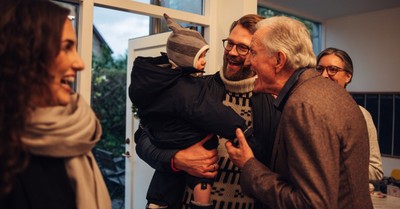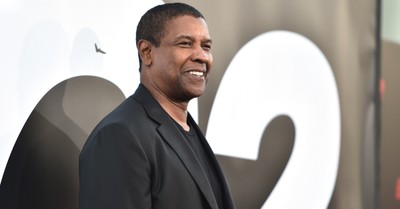Pope Francis a Year Later: How Does He Do It?
On March 13, 2013, Argentinean Cardinal Mario Bergoglio was introduced to the world as the 266th Pope of the Catholic Church. Much has happened in a year.
Pope Francis' work ethic has become legendary. His day is crowded with liturgies, meetings, and public appearances. His humility is striking: he schedules his own appearances, lives in guest quarters, and forgoes the trappings of his office.
His humor is remarkable as well. On St. Valentine's Day last month, for instance, he presided over a service blessing 10,000 engaged couples from 40 countries. He said to them, "We all know there isn't a perfect family, neither a perfect husband or a perfect wife. And let's not talk about the perfect mother-in-law." He was namedTIME Magazine's "Person of the Year," and became the first pontiff to make the cover of Rolling Stone magazine. It's been quite a year.
What's the secret to the pope's stamina, humility, and humor? Consider his priorities. He begins the day at 4:45 AM with two hours of prayer. He makes time through the day to stop for prayer and Bible study. He finds in his personal communion with God the power he needs to serve his Lord.
I'm reading John Eldredge's Walking With God. Eldredge makes a point early in the book that I had never considered before: "there was a paradise called Eden. In that garden of life as it was meant to be, there lived the first man and woman. Their story is important to us because whatever it was they were, and whatever it was they had, we also were meant to be and to have." The intimacy they knew with God, we are created to know with him. As Eldredge notes, "It is our deepest need, as human beings, to learn to live intimately with God. It is what we were made for."
I'd like to suggest a step in that direction. The prophet Daniel was marked by this daily commitment: "he got down on his knees three times a day and prayed and gave thanks before his God" (Daniel 6:11). This three-fold prayer commitment has been common across Jewish culture from his day to ours. Every day, faithful Jews stop for morning prayer (called Shacharit), prayer at noon or early afternoon (called Minchah), and evening prayer (calledMa'ariv or Arvith). It is no surprise that the Holy Spirit fell at Pentecost during the time of morning prayer (Acts 2:15).
If we would experience the intimacy with God for which we were created-if we would change our culture as did the Pentecost Christians-don't we need to meet with God as they did? I invite you to make time for God in the morning, at noon, and during the evening, every day for the next week. After that week, I believe you'll be so blessed that you will want to continue this lifestyle. You don't have to begin at 4:45 AM with two hours of prayer like Pope Francis does. But as your body needs food at least three times a day, your soul needs nourishment as well.
Meeting with God three times a day for the next week—will you join me in this commitment?
Publication date: March 12, 2014
















